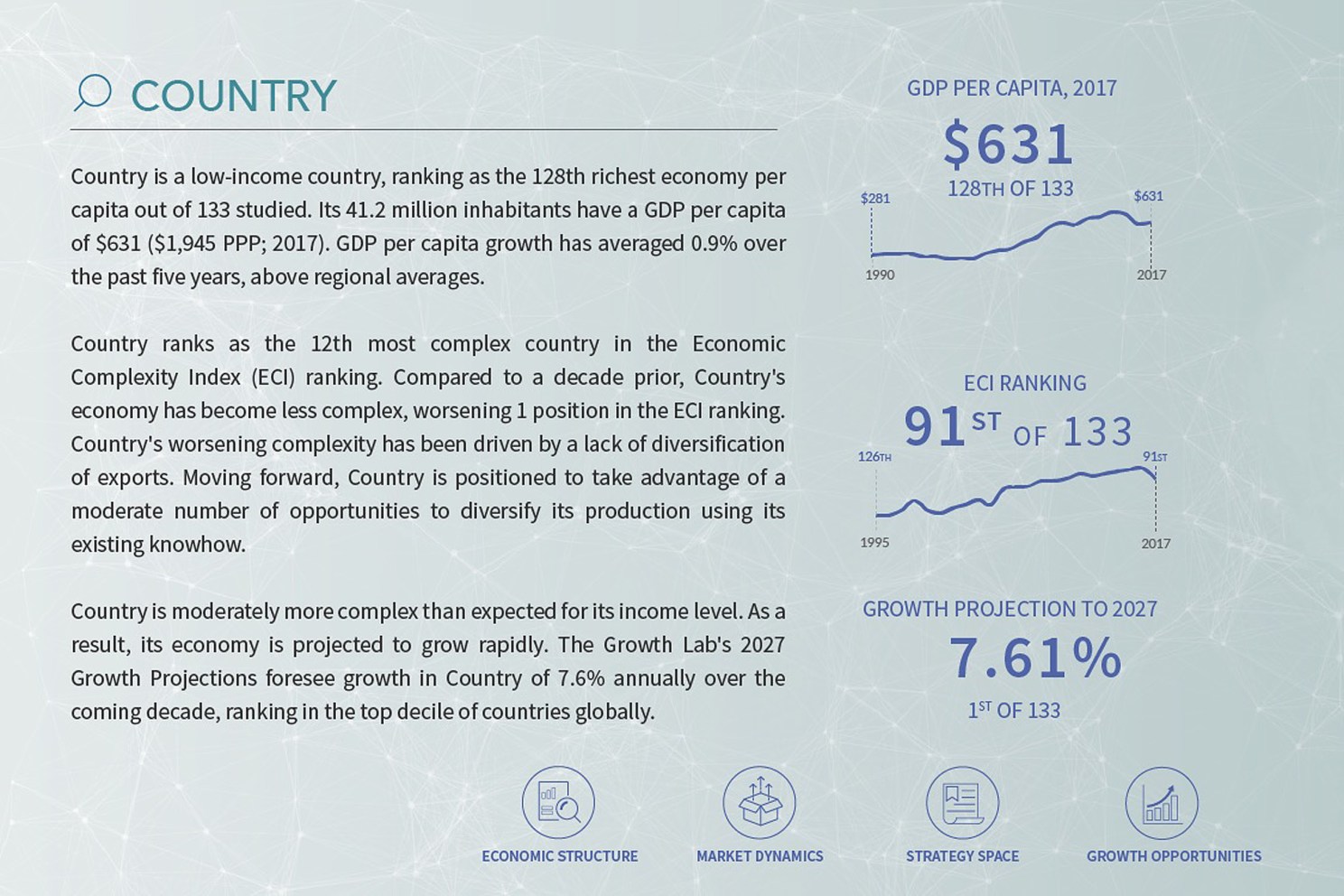Growth Lab’s new data tool identifies diversification opportunities for 130 countries

An introductory slide for the Atlas of Economic Complexity’s Country Profiles platform. Courtesy of the Growth Lab
Harvard’s Growth Lab today launched Country Profiles, a unique data visualization tool that guides users on an interactive journey through a country’s economic structure and dynamic growth patterns ultimately revealing the strategy necessary to achieve greater prosperity. This first-of-its-kind platform — built into the Atlas of Economic Complexity — revolutionizes how to think about economic strategy, policy, and investment opportunities for more than 130 countries.
“The launch of Country Profiles is a critical step in the evolution of the Atlas of Economic Complexity,” said Ricardo Hausmann, director of Harvard’s Growth Lab and professor at the Harvard Kennedy School (HKS). “We learned that navigating 50-plus years of global trade data and 6,000-plus products was challenging for certain users of the Atlas, but with Country Profiles, the data and analysis are summarized within 10 visualizations. Users get a step-by-step explanation of where a country is coming from and, most exciting, where it may go.”
The Country Profiles platform introduces several new visualizations including:
- Export Growth Dynamics: reveals whether a country’s exports have grown and whether growth has been driven by complex exports or raw materials
- New Products: displays new products added over 15 years along with an Economic Diversification Grade and Diversity Rank
- Potential Growth Opportunities: recommends one of four possible strategic approaches; Light Touch, Parsimonious Industrial Policy, Strategic Bets, and Technological Frontier
- New Product Opportunities: generates the top 50 product opportunities based on strategic approach complete with additional information on the global market size and growth
[gz_article_embed type=”embed” layout=”default” ratio=”16-9″]https://www.youtube.com/watch?v=KQAarHByMTM[/gz_article_embed]
Growth Lab researchers note the products in the opportunities’ table should be considered an entry point for further study.
“Ultimately, policymakers should be careful not to engage in picking winners, but should study the true feasibility of these industries and address what constraints may prevent their take-off,” said Tim Cheston, senior manager of applied research at the Growth Lab. “The table aims to help orient the search to understand the opportunities that exist to diversify economies.”
Growth Lab researchers place the diversity of tacit knowledge — or knowhow — that a society has at the core of economic growth. The measure of economic complexity, as the diversity and sophistication of a country’s knowhow, is able to closely explain differences in country incomes.
“This is like adding the Periodic Table to chemistry,” said Lant Pritchett, RISE research director at the Blavatnik School of Government, University of Oxford. “It organizes knowledge in a way that helps everyone: from student to journalist to policymaker to investors to economic experts.”




